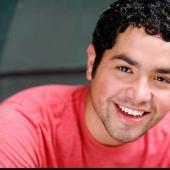Best of 2012-2013: 'Minneapolis Madness'
Editorial

There were so many productions and artists this past year that inspired/challenged me to think in new ways about theater, that to choose a best would be limiting to this community. Everyone should be proud of their contribution to this artistic scene and I am excited for a whole new season of moments yet to be created. Instead, I want to give attention to a monthly event that erases separation in this city while enriching a new generation of theater participants. It helped to end a feeling of isolation in me, and continues to reinforce the idea that theater can be for every person, every place, every day.
When I first moved back to Minnesota more than three years ago, I felt overwhelmed by how many people were involved in this theater community. Arriving from New York I was used to a city saturated with artists, but the Twin Cities seemed to be localized in a strange way. I would work with one company and become familiar with a group of people, then move on to a next project and meet an entirely different pocket of artists. This led to an exciting assortment of new people and practices, but ultimately I felt like I was on this artistic journey alone. Eventually, the overlapping of one institution to another began to clarify itself to me, but I longed for a space where all artists could come together for a moment of creation outside of company lines and familiar faces.
Removing tables from the lunchroom
I met my future partner Jessica Huang while performing at the Lab Theater. Before we started dating, she invited me to watch her company The Unit Collective produce their monthly Minneapolis Madness at the Playwrights’ Center. Due to my interest in her, I was interested in it. The Unit Collective was formed in 2009 by a collection of 10 playwrights of color to create a space for the under-represented theater professionals in this city. The original collective included playwrights Kris Diaz, Huang, Anton Jones, Eric Pogi Sumangil, Joe Cedillo and now includes local writers Eliza Rasheed and Taous Kahzem. The Unit is one of two resident companies at the PWC, which has hosted their signature Madness series for four years.
When I arrived at my first Madness, I was greeted in the lobby by a host of theater talent gathered together holding paper plates filled with curry. After a few moments, Reginald Edmund (our host for the event) explained the outline of the evening in simple terms:
- The Unit playwrights are given a theme to write about for a month.
- Each playwright submits a 10-minute play by the end of the month.
- Actors are cast from the Unit’s talent pool and given scripts within two days of a Madness. Those who have never performed in a Madness will usually only appear in one play. Veterans might play numerous parts.
- Each play is rehearsed for 30 minutes prior to Madness with two rotations for actors and directors to switch scripts and rehearsal locations.
- A quick dinner is provided, and then it’s go time.
The PWC Theater, not usually pounding with hip-hop beats, was bumping as I settled in for my first time. I looked around at the diverse house moving to the music, ready for a fun night. Each 10-minute play raced across the stage at breakneck speed with hardly enough time for performers to grab new pages off their seats. Actors were jumping up from the audience, arranging the stage as decided in the quick rehearsals, usually with the director helping to place chairs or simple props when needed. After only an hour the Madness was over, and I left wanting to know this crazy group of creators, to play in their jarringly fast event and to introduce new people to the series.
I had witnessed artists playing in a room together despite their background or experience, and felt a company welcome everyone to join in the celebration of theater. The Unit gave an open invitation to anyone who wanted to write, act, direct, or donate to the next Madness - they had completely won me over.
Dinner without a table
Madness is a special moment where artists from various paths and disciplines collaborate for one night of theater. In any rehearsal there might be first time playwrights, directors, actors, or producers working together for an hour. I have enjoyed sharing the stage with actors learning English, performed scripts by first-time writers, and collaborated with directors who wanted a chance to throw something on stage in a safe environment. Seeing the face of a first time theater participant at Madness is a moving experience. The spirit of the room opens while ego leaves, and the air left in the space is reserved for the breath of creation.
Over the past four years The Unit Collective has elevated their monthly Madness by attracting some of best talent/minds in the city to partake in the event. Directors like Jess Finney, Lindsey Cacich, Tisch Jones, Chris Garza, Harry Waters Jr. and Jamil Jude are regulars, as are actors Rachel Austin, Adam Western, Katie Kaufmann, Dylan Fresco and Heidi Berg. Also, each month The Unit invites a guest artist to lead a post-show discussion over various topics around the theater community. Randy Reyes, Marion McClinton, Dominic Taylor, John Miller-Stephany, Richard Cook, Laurie Carlos and Sha Cage have all stopped by to share stories and insight from their own artistic experiences.
Madness is also a way to sharpen your tools as a creator as it poses some of the most challenging obstacles for theater makers across the board. The playwrights must narrow the scope of a play around a given theme. The directors must carve a space and create a world for the script in only 30 minutes of rehearsal. The actors are asked to create new characters quickly with bold choices, speak new words truthfully, and fill the moments suspended over a waiting audience.
As an artist in this city I want to find new ways to connect outside of audition season and green rooms. The Unit has one of the best ways to bring members of this community together, and I look forward to a new season of themes. Sometimes it takes throwing yourself into something like the crazy SNL performance schedule of Madness to shake out tired routines, but the lasting effect is always one of humble satisfaction.




